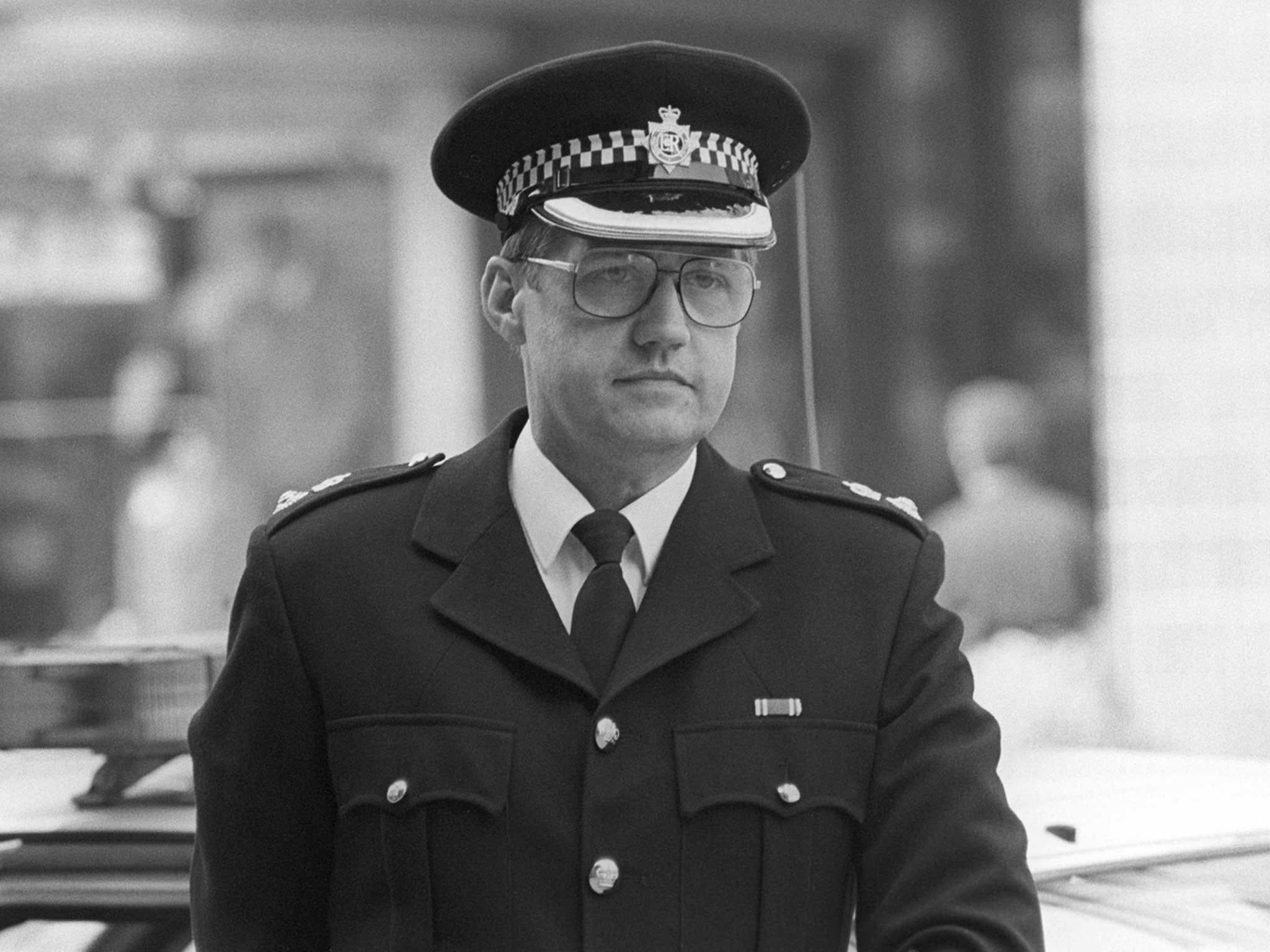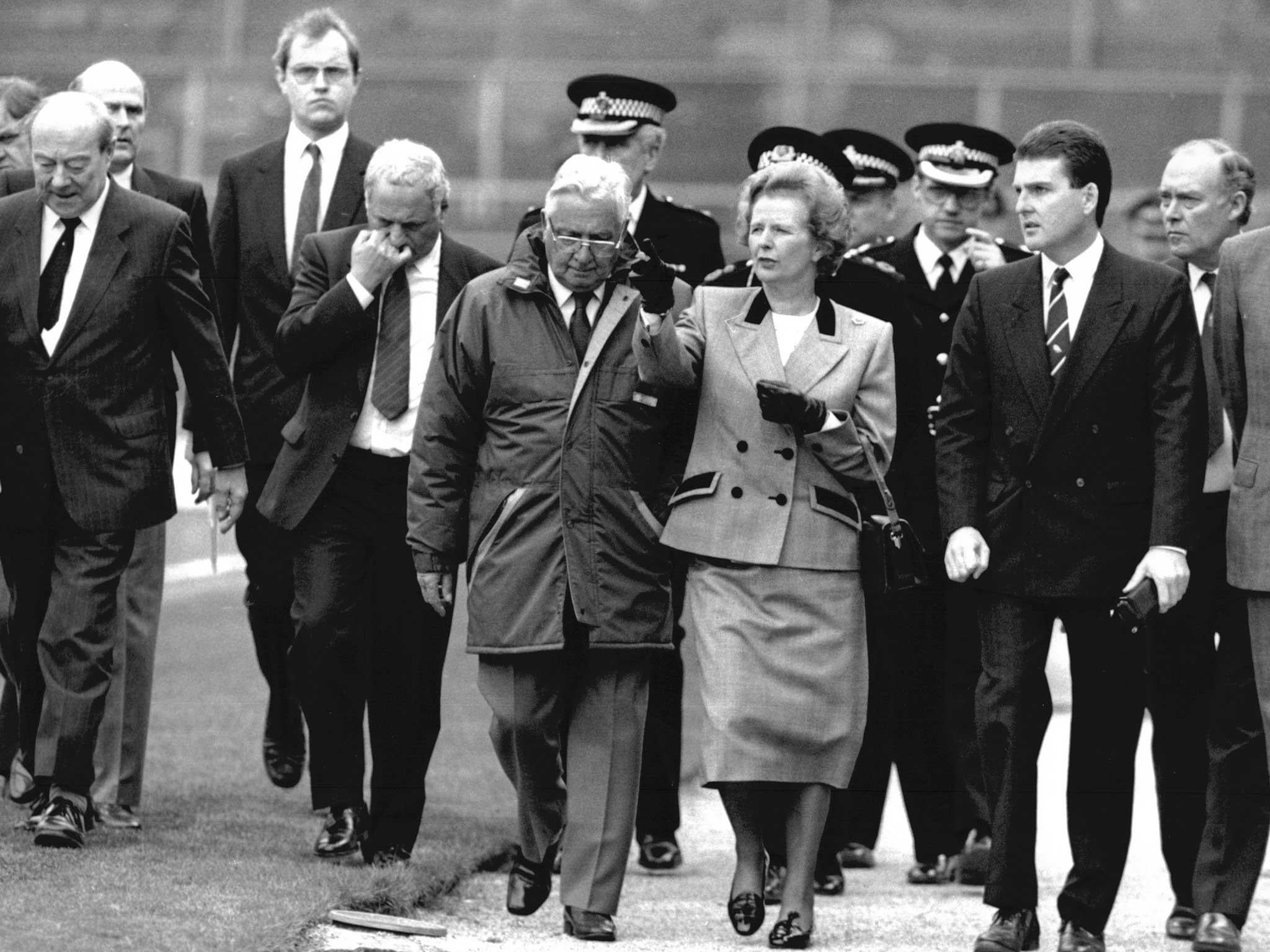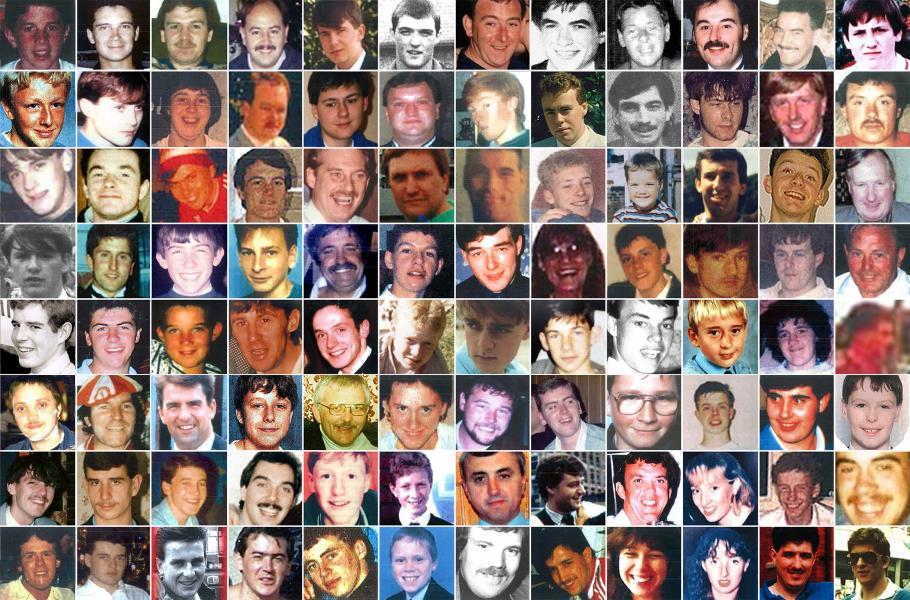Hillsborough: Who is David Duckenfield, the former police Chief Superintendent facing manslaughter charges?
Former South Yorkshire Police Chief Superintendent promoted just 19 days before disaster
David Duckenfield was promoted to his role as Chief Superintendent just 19 days before the FA Cup semi-final between Liverpool and Nottingham Forest at Hillsborough.
The police officer had joined South Yorkshire Police as a cadet at the age of 16, been appointed a constable in 1963 and rapidly rose through the ranks.
Having reached sergeant level aged just 25 after several commendations, he was promoted to the rank of inspector in 1974, chief inspector three years later and superintendent in 1983.
After rising to become Chief Superintendent, one of Mr Duckenfield’s first major tasks was to lead policing at Hillsborough stadium – despite having never commanded a football match.
His actions on 15 April 1989 are now the subject of a criminal inquiry seeing Mr Duckenfield face charges of manslaughter by gross negligence of 95 men, women and children.
Sue Hemming, head of the Crown Prosecution Service’s special crime division, said the charge could not relate to the 96th victim of the disaster, Anthony Bland, as he died almost four years later.

“We will allege that David Duckenfield’s failures to discharge his personal responsibility were extraordinarily bad and contributed substantially to the deaths of each of those 96 people who so tragically and unnecessarily lost their lives,” she said.
“The offence clearly sets out the basis of those allegations.”
Mr Duckenfield ordered a gate into the Hillsborough football stadium to be opened to ease overcrowding outside, causing a rush of thousands of Liverpool fans through a narrow tunnel into central pens.
The move allegedly led to the fatal crush on the Leppings Lane terrace, as spectators were trapped against metal fences behind the goal.
In order to prosecute Mr Duckenfield, now 72, prosecutors will apply to have a stay imposed by a judge after a private prosecution over the Hillsborough disaster in 1999 removed.
He is one of six people to be charged, including three other police officers, a solicitor who acted for South Yorkshire Police and Sheffield Wednesday’s safety officer.
A lawyer representing Mr Duckenfield and former Chief Superintendent Donald Denton, who is charged with perverting the course of public justice by altering witness statements, said it would be “inappropriate to make any comment” amid continuing criminal investigations.

Mr Duckenfield has been a key focus of repeated investigations and inquiries into the Hillsborough disaster, as survivors and families of the victims fought a gruelling 28-year battle for justice.
He was suspended from duty after the first public inquiry in 1989, retiring from South Yorkshire Police two years later with an index-linked pension reportedly worth £23,000 a year.
Retreating into relative obscurity in Dorset until the launch of a fresh inquest in 2014, Mr Duckenfield is believed to be a keen golfer and apparently resorted to booking a taxi in a false name to evade reporters at Heathrow Airport last year.
In evidence given to the inquest, told victims’ families he was “dreadfully sorry”, telling how he had journeyed through depression and heavy drinking in the wake of the Hillsborough disaster.
Mr Duckenfield gave evidence at the Taylor Inquiry in 1989, where members of South Yorkshire Police denied responsibility.
No criminal charges were recommended over police “blunders of the first magnitude” listed in the final report, which resulted in sweeping changes to football stadiums across the UK including the abolishment of standing terraces.
South Yorkshire coroner Dr Stefan Popper started inquests into the 96 deaths in 1990, where evidence after 3.15pm on the day of the disaster was controversially ruled inadmissable, reducing scrutiny of the emergency response.
The 90-day inquest resulted in a verdict of accidental death being returned by nine to two.
In 1993, dismayed families sought a judicial review of the inquest, which was eventually rejected.
Jack Straw, then the Home Secretary, launched a limited probe in 1997 but concluded that new inquests were not warranted.
Another attempt came in 2006 when Anne Williams, whose 15-year-old son Kevin died in the disaster, submitted a case that was thrown out by the European Court of Justice.
But a turning point came on the 20th anniversary of the crush, when Labour minister Andy Burnham was booed and heckled after speaking to thousands of fans gathered at Anfield.
Mr Burnham said he had already been working on a disclosure of Hillsborough files that sparked the creation of the Hillsborough Independent Panel, but the incident brought the disaster back to the government, and country’s attention.

Its 2012 report decried the blame wrongly attributed to fans, causing Prime Minister David Cameron to apologise for the “double injustice” in the House of Commons.
Months later, the Independent Police Complaints Commission launched its investigation into officers’ conduct, and in December of the same year the High Court quashed the accidental death verdicts of the initial inquests.
On the same day, Theresa May announced a new criminal probe to investigate “all of the people and organisations involved - before, on, and after” the disaster.
The new inquest concluded in April last year, finding that 96 Liverpool fans were “unlawfully killed” and exonerated the victims of any wrongdoing.
More than 28 years after their deaths, families of the victims gathered to hear the result of their long campaign in Warrington.
Barry Devonside, whose son Christopher, 18, died at Hillsborough, pumped his fist after a meeting with lawyers and other relatives.
“Everybody applauded when it was announced that the most senior police officer on that particular day will have charges presented to him,” he said.
Trevor Hicks, whose daughters Sarah and Vicki died in the disaster, said the decision to charge Duckenfield and five others was a “success for society at large, not just for us.”

